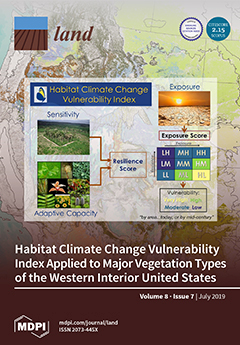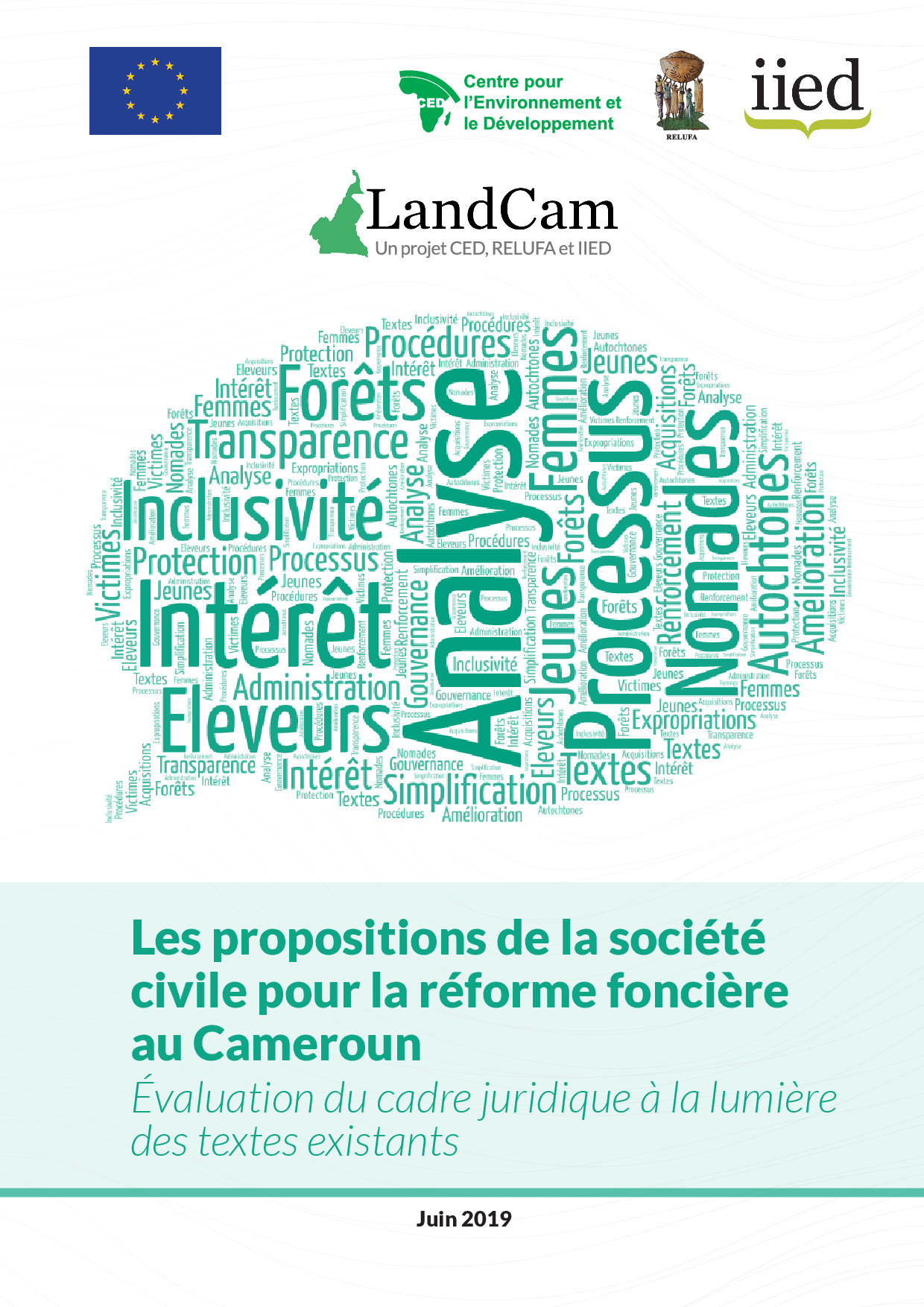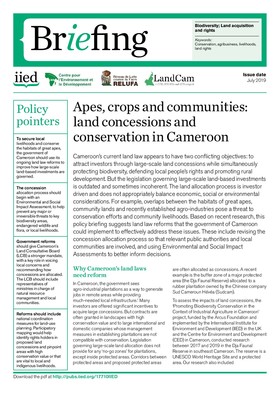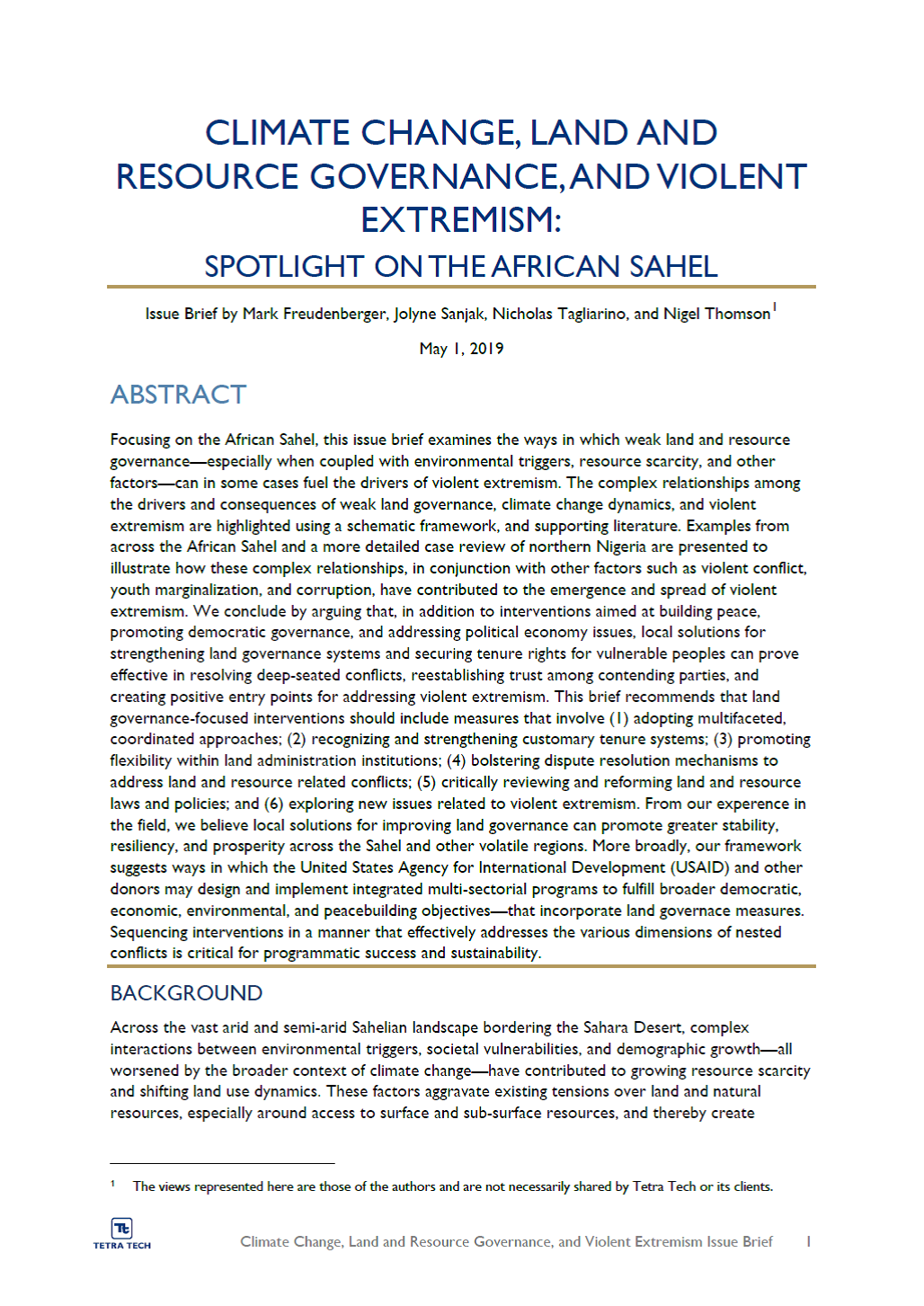Extensive areas of Africa's humid tropical lowland forests have been allocated to timber concessions, but are also inhabited by villagers who obtain resources from the forest. Approximately 61% of timber species in the Congo Basin also yield locally used non-timber forest products (NTFP).…
Given the persistent poor livelihood of cocoa-farming households, future climate predictions and the worldwide demand pressure for higher cocoa quality and productivity, there is still a strong need to find new approaches that guarantee a sustainable cocoa future in cocoa-producing countries…
Men and women farmer participation and choice of variety could guide breeding and drive the adoption of different haricot bean varieties. Thus, understanding how gender influences participation and choice of bean cultivation and marketing is fundamental. The study sought to analyse how socio-…
The support plan for the Sahel is a regional approach to collectively address the root causes of disruptions such as poverty, migration and youth unemployment, climate change, insecurity, governance and institutional issues in the region. In this report an overview of the current situation for…
Recent debates in social anthropology on land acquisitions highlight the need to go further back in history in order to analyse their impacts on local livelihoods. The debate over the commons in economic and ecological anthropology helps us understand some of today’s dynamics by looking at…
Date: juillet 2019
Source: <a href="https://www.farmlandgrab.org/post/view/29025#rssowlmlink">Farmlandgrab</a>, <a href="…
Land resources in montane highlands often represent common property prerequisites for the survival and sustenance of the human in communities that are dependent thereof. The Oku and Mbessa communities on the northern fringe of the Ijim-Kilum citadel have in the course of manning their respective…
Rapport de l’étude réalisée par le RADD (Réseau des acteurs du développement durable) sur «La responsabilité de grandes sociétés de monoculture agro-industrielle dans les injustices environnementales et sociales que subissent les femmes riveraines»
Les plantations agro-industrielles à…
Cameroon’s current land law appears to have two conflicting objectives: to attract investors through large-scale land concessions while simultaneously protecting biodiversity, defending local people’s rights and promoting rural development. But the legislation governing large-scale land-based…
Land registration and titling in Africa are often advocated as a pro-poor legal empowerment strategy. Advocates have put forth different visions of the substantive goals this is to achieve. Some see registration and titling as a way to protect smallholdersrights of access to land. Others frame…
Argues that the role of the European Union in landgrabbing is manifold. EU actors are involved in the financing of large-scale land deals worldwide through forms of private finance;public finance and a combination of both. The EU’s position as an agricultural powerhouse is dependent on the huge…
Tetra Tech’s land tenure and property rights experts examine how weak land and resource governance can fuel drivers of violent extremism. With a focus on the African Sahel, this new issue brief finds this dynamic is especially prevalent when land and resource governance challenges are coupled…








